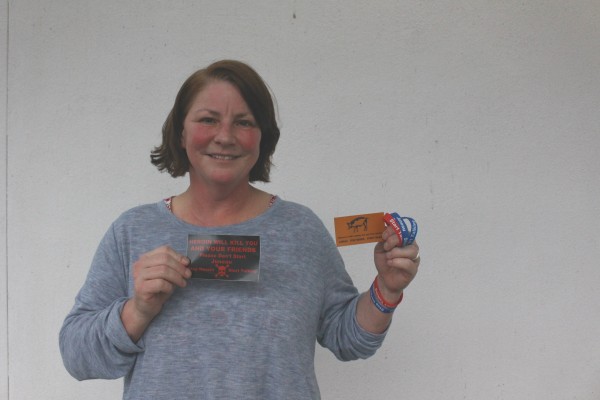There are two different Juneau events this weekend to raise awareness about heroin addiction. The capital city has logged seven heroin-related deaths this year, and the community is banding together to talk about what’s happening to their neighbors and family.
Michele Morgan said she wasn’t aware of an opioid problem in Juneau. The realization happened gradually.
When it came time for her teenage son to have his wisdom teeth pulled, she asked if he would tell his friends.
“And he said, ‘No, mom. Don’t tell anyone.’ He said, ‘Mom, because they’ll come to our house. They’ll know I have oxycodone,’” Morgan said.
That was about nine years ago. Oxycodone, like heroin, is an opioid. It elicits the same effect on the brain. If you look at the recent drug seizures in Juneau, heroin is gradually increasing.
Morgan, the director of the Juneau Softball Association, said she noticed a shift in 2014. That’s when one of the young players died of an overdose.
“No one talked about it, except through the grapevine,” she said. “We have a benefit tournament we do for our players for those who have passed. So we did a plaque for that kid. And six months later we lost another kid to the same, to heroin.”
Then another. Breyner Haffner, in his mid-twenties. “Like one of my children,” Morgan said.
He used to play on her softball team.
“And I came home and I was mad and I was scared. And so I went on my computer and I ordered some stickers and some magnets,” Morgan said. “Anything I could get to make me feel like I was getting the word out.”
The stickers say, “Heroin will kill you and your friends, please don’t start.” That snowballed into the grassroots initiative: Stop Heroin, Start Talking.
The Juneau police noticed a trend last year in heroin-involved deaths and they’re tracking it now. During the next few months, they’ll be releasing videos of users speaking about their struggles with addiction.
The people appear in silhouette. Their voices are altered.
Morgan said the hope with her initiative is education but also to remove the stigma attached to losing a loved one.
Then there’s policy change, like Senate Bill 23. It allows a medication called Naloxone to be distributed at trained agencies or sold over-the-counter at pharmacies.
“And Naloxone under the brand name Narcan stops the heroin overdose or the opiate overdose. Is it a cure for addiction? No, but it could save lives,” she said.
The Senate has already passed the bill, sponsored by Sen. Johnny Ellis. It now needs to pass the House. And as the legislative session gets underway, Morgan said she’ll be focusing her energy promoting it.
Overall, she said she wants to inform the community that having addiction isn’t a character flaw. It’s a health crisis. One that can be addressed.
“We’re coming out,” she said. “We’re not going to hide our family members or be ashamed, we’re going to kick heroin’s butt, and we’re going to do that as a group.”
Before she leaves, she hands over a Stop Heroin, Start Talking bracelet. Morgan said she’s giving them out to everyone she meets.
On Saturday, Stop Heroin, Start Talking is holding a 5:30 p.m. event at Rockwell. It features hip-hop performances and karaoke. There’s a $5 suggested donation.





